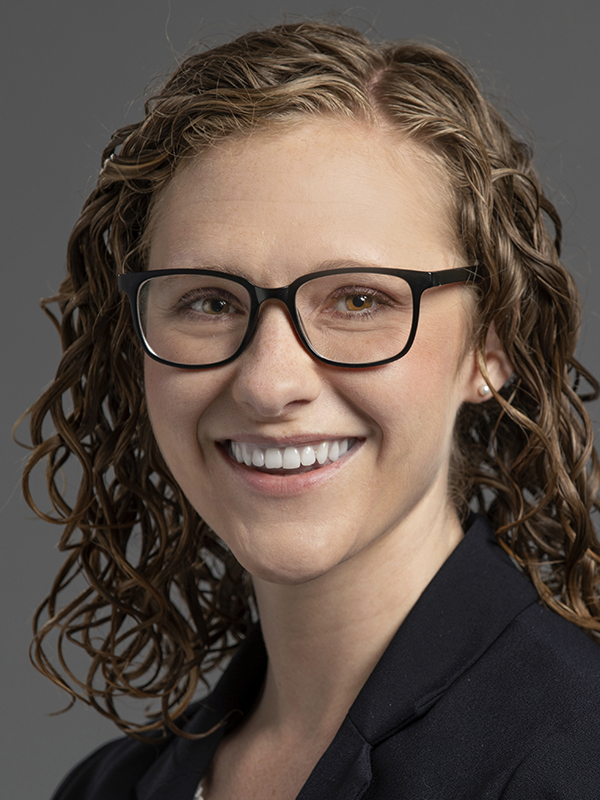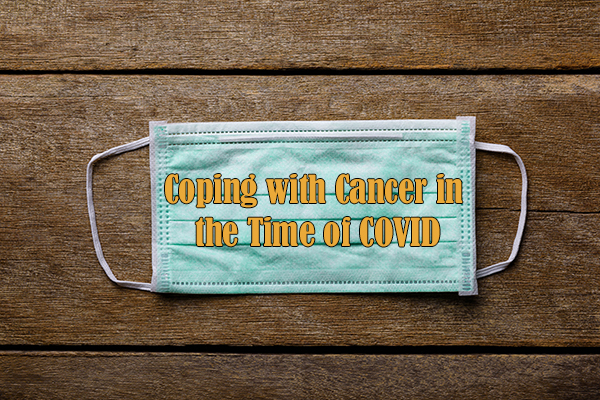Coping with Cancer in the Time of COVID
by Teresa L. Deshields, PhD, ABPP, and Patricia Fank, PsyD
Coping with a cancer diagnosis can be challenging. But coping with cancer during a pandemic? That’s even more difficult.
Not only are you navigating doctor’s appointments and medical procedures, but now you’re having to do so with limited support and added safety protocols. You may also have concerns about vaccinations, your job, your finances, and your loved ones. Plus, chances are all these concerns may be stirring up some tough emotions – loneliness, fear, worry, irritability, sadness. Then, on top of all this, the COVID-19 pandemic has made it even more challenging to take part in activities that can help you manage stress – visiting with family and friends, keeping a regular routine, taking part in group activities, staying physically active.
In the best of times, a diagnosis of cancer brings up feelings of uncertainty. You may be unsure about your prognosis, your treatment plan, potential side effects, and the social and emotional changes that a cancer diagnosis can bring about. But, now, there is also much uncertainty about COVID-19. You may be asking questions like
- How long will the pandemic last?
- As a cancer survivor, am I more at risk for getting COVID?
- Should I get the COVID vaccine?
- Is the hospital safe?
- Can family come with me to appointments or visit me in the hospital?
- Will my treatment be delayed?
It’s important to find a balance between being informed by news and becoming overwhelmed by it.
For many cancer survivors, this uncertainty can lead to anxiety, stress, or worry that is overwhelming and difficult to manage. For others, the loss of social supports, freedom, and beloved activities may lead to feelings of sadness, isolation, and depression. It is important to recognize that everyone is different and there is no right or wrong way to react to a cancer diagnosis – or to a pandemic.
No matter where you fall on the spectrum, these 10 tips can help you cope with cancer in the time of COVID.
1. Manage your exposure to news.
This might mean limiting the time you spend looking at, watching, and even talking about the news, as being exposed to too many negative stories can elevate stress levels and trigger anxiety. Certainly, it’s a good idea to look to reliable sources for news and other information, but it’s important to find a balance between being informed by news and becoming overwhelmed by it.
2. Practice self-compassion and self-care.
Taking care of yourself, in the most basic sense, means eating a healthy diet, getting enough sleep, and engaging in some exercise. Self-compassion goes further and includes avoiding self-criticism and setting reasonable expectations for yourself. For example, instead of berating yourself for the unpleasant emotions you may be experiencing, or just ignoring your feelings altogether, try to remind yourself that times are tough right now. And, instead, think about how you can comfort and care for yourself in this moment.
3. Try a change in scenery.
If you’ve been spending too much time at home or in medical settings, get outside. Experts tell us that exposure to COVID-19 is less of a concern when we’re outside. Plus, spending time outdoors can reduce symptoms of depression and anxiety while improving mood and self-esteem.
4. Adopt an “it is what it is” attitude.
Sometimes, we fall into catastrophizing or thinking about the worst possible outcomes. This is usually not helpful and tends to increase feelings of distress and anxiety. Instead, try to take a step back and recognize that these thoughts are only “guesses” that our mind has created, not facts. As you take some deep breaths, ask yourself if the way you are viewing the situation is helpful or not helpful. Then, try adjusting your attitude, maybe by taking a “wait and see” approach to the situation.
If you’ve been spending too much time at home or in medical settings, get outside.
5. Get into a routine.
Cancer (and the associated medical care) can disrupt your usual routine. Furthermore, COVID-19 has disrupted routines for all of us, changing how we work, what we do for fun, and how we interact with others. However, routines are comforting and can help us keep our sleep–wake schedules consistent. And, as a bonus, routines allow you to carve out time for self-care and other activities you genuinely enjoy. Focus on creating a schedule for doing chores, completing essential tasks, exercising, socializing, self-care, and all the other things you need to do each day.
6. Stay connected with others.
Though it might be a little more difficult to do in a pandemic, having social support is good for us and can even be protective in terms of health outcomes. Find ways to stay connected with others, whether that’s through safe in-person meetups (wear a mask and meet outdoors) or connecting virtually or over the phone.
7. Practice gratitude.
People who express gratitude typically have better moods and lower rates of stress. Plus, it’s easy to do. Try to establish a regular practice of reflecting on the good things about your day. You may also consider writing a thank-you note to someone, starting a gratitude journal, counting your blessings, or meditating on all the things you are grateful for.
Though it might be a little more difficult to do in a pandemic, having social support is good for us and can even be protective in terms of health outcomes.
8. Plan fun activities.
While lower energy levels may complicate your participation in some activities, making time for things you enjoy will help you feel more normal and can lift your spirits. It’s best to plan a few things to look forward to each week rather than leaving it to chance.
9. Find an outlet for emotional expression.
Bottling up your emotions is exhausting and can be harmful to your health. Work to find a form of emotional expression that works for you – perhaps music, exercise, or gardening.
10. If you are struggling to cope, reach out for help.
Your healthcare team can connect you with support resources and professional help. It may also be beneficial to talk with a counselor or religious leader to get some support. You don’t have to cope with cancer – or the COVID-19 pandemic – on your own. With the pandemic, there are more options than ever before for getting help in a virtual format.


Dr. Teresa Deshields (left) is a licensed clinical psychologist and the director of Supportive Oncology at Rush University Medical Center in Chicago, IL, where she is also a professor in the Departments of Medicine and Psychiatry & Behavioral Sciences. She is a past president of the American Psychosocial Oncology Society. Dr. Patricia Fank (right) is an assistant professor in the Department of Psychiatry & Behavioral Sciences within Supportive Oncology at Rush University Medical Center. She also serves as the clinical psychologist for the Division of Hematology, Oncology and Cell Therapy, Section of Bone Marrow Transplantation and Cellular Therapy.
This article was published in Coping® with Cancer magazine, May/June 2021.


